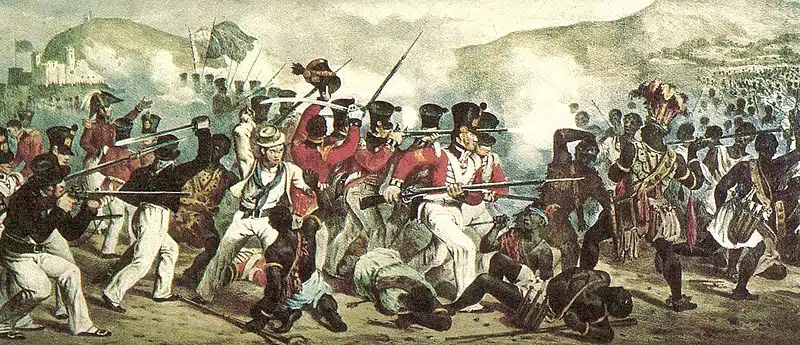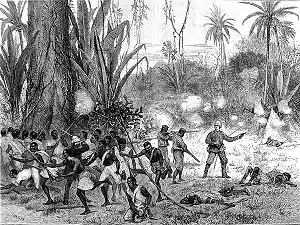The Second Anglo-Ashanti War

Unveiling the Ashanti War of 1873: A Clash of Empires in West Africa
To begin, the year 1873 marked the beginning of the Second Anglo-Ashanti War, also known as the Ashanti War of 1873, amidst escalating tensions between colonial powers in West Africa.
The Ashanti Empire, renowned for its strength and independence, clashed with the British Empire in a bid to preserve their sovereignty and resist foreign interference.
The Formation of the Ashanti Ring
At the heart of this conflict was the creation of the Ashanti Ring, a defensive structure conceived by British General Sir Garnet Wolseley to encircle Kumasi, the capital of the Ashanti Empire.
Imperialist Ambitions and Ashanti Resistance
As European nations expanded their imperialistic pursuits in the late 19th century, the Ashanti Empire found itself ensnared in the wave of colonization. Despite the British recognition of the region’s valuable resources and strategic importance, the Ashanti remained resolute in their opposition to imperialist endeavors.
The Campaign Unfolds
Led by Sir Garnet Wolseley, British forces launched a military campaign against the Ashanti in 1873. However, Wolseley’s strategy involved isolating Kumasi by encircling it with fortified positions, effectively cutting off the Ashanti leadership from external support.
The Ashanti Ring’s Impact
The construction of the Ashanti Ring, with its intricate network of trenches and defensive structures, proved instrumental in weakening the Ashanti resistance. The campaign saw fierce battles and significant casualties on both sides, with disease further decimating the troops.
The Climactic Capture of Kumasi
In February 1874, the climax of the war arrived with the British capture of Kumasi. Recognizing the futility of continued resistance, the Ashanti leadership surrendered to the British, culminating in the signing of the Treaty of Fomena, which outlined the terms of peace.
Legacy and Resilience
Though the Ashanti Empire was not annexed, it was compelled to accept British protection, effectively becoming a British protectorate. The Ashanti War of 1873 and the Ashanti Ring campaign left an indelible mark on West African history, underscoring the clash between imperial ambitions and the quest for self-determination.
Tours in Ghana: Exploring Ashanti Heritage
In conclusion,
Tours in Ghana offer a unique opportunity to delve into the historical significance of the Ashanti War of 1873. Also, these journeys provide insight into the resilience and bravery of the Ashanti people as they confronted colonial challenges, laying the groundwork for future struggles for independence across the African continent. Additionally, lets book an African tour particularly a Ghana tour to learn more about the Ashanti wars.


0 Comment